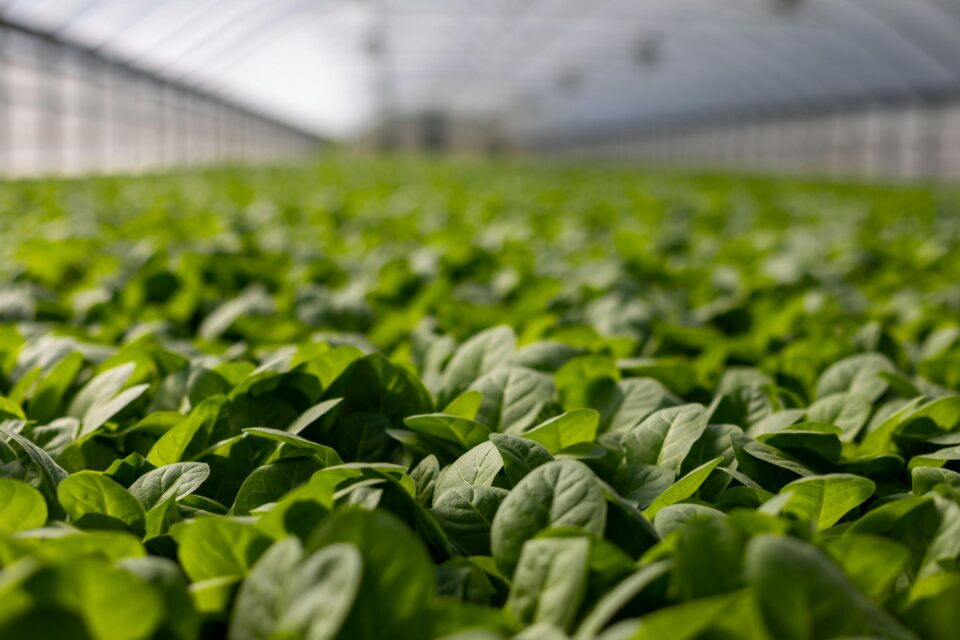In the evolving landscape of modern agriculture, indoor farming has emerged as a highly efficient and sustainable farming method. From hydroponic farms to indoor vertical farming systems, these controlled environments are revolutionising how we grow plants—especially in urban areas where space is limited. However, maintaining optimal air quality is critical to ensure plant health, increase yield, and provide safe, fresh produce. In this blog, we explore the importance of air filtration for indoor farming and the best equipment to support these advanced growing systems.
Does Air Quality Matter for Greenhouse Farming?
Absolutely. Air quality plays a vital role in controlled environment agriculture (CEA), where every variable—from humidity to temperature to air circulation—impacts plant growth. Unlike traditional farms or outdoor farming setups, indoor farming systems rely heavily on precise control to foster healthy crops such as leafy greens and other fresh foods.
Poor air quality can hinder plant development, encourage mould growth, and increase the spread of airborne pests and pathogens. Moreover, since many indoor growers use LED lights, temperature and airflow must be closely managed to prevent heat buildup and create a uniform growing environment.
Clean air is also essential for protecting workers and maintaining hygiene standards—particularly in food production operations where contamination can compromise safety.
Clearing the Air for Indoor Farming
To support the health of plants and workers alike, industrial air filtration systems must be incorporated into any professional indoor farm setup. Here are some essential air movement and filtration products designed to enhance air quality in farming systems:
Negative Air Units
Negative air units use HEPA filters to trap harmful airborne particles such as dust, spores, and bacteria. Ideal for hydroponic farms and enclosed greenhouse spaces, negative air units create a clean airflow by drawing in contaminated air and exhausting it through a HEPA filter—essential for preventing the spread of plant diseases in tightly packed crops.
Wall Exhaust Fans
Wall exhaust fans are crucial for regulating air exchange in indoor vertical farming setups. They help remove excess humidity and heat generated by LED lights, while also reducing concentrations of carbon dioxide and other gases. This improves overall air circulation, keeping the climate stable and suitable for growing crops all year round.
Utility Air Circulators
Air circulators compact yet powerful fans are designed to move air evenly across plant canopies. In densely packed environments where airflow is limited, utility air circulators prevent stagnant zones and ensure that fresh air reaches every part of the crop. This is especially useful in stacked systems used to grow leafy greens in urban areas.
Industrial Roof Fans
Perfect for larger facilities, industrial roof fans offer high-capacity ventilation, helping to draw out warm, stale air and bring in fresh outdoor air. When integrated into a well-designed airflow plan, roof fans can significantly reduce the need for cooling equipment and enhance the overall efficiency of your farming method.
Smarter Farming Starts with Clean Air
As demand for fresh produce grows and food miles become a concern, indoor farming presents an innovative solution for local, sustainable food production. But to ensure the success of this farming revolution, proper air filtration and circulation must be a core part of the system.
Whether you’re establishing a large-scale hydroponic operation or setting up a small vertical farm in an urban centre, Fanquip provides industry-leading air filtration and ventilation products designed to suit your unique growing needs.
Explore our range of air movement solutions at Fanquip. Elevate your farming systems with equipment that supports plant health, productivity, and environmental control.
